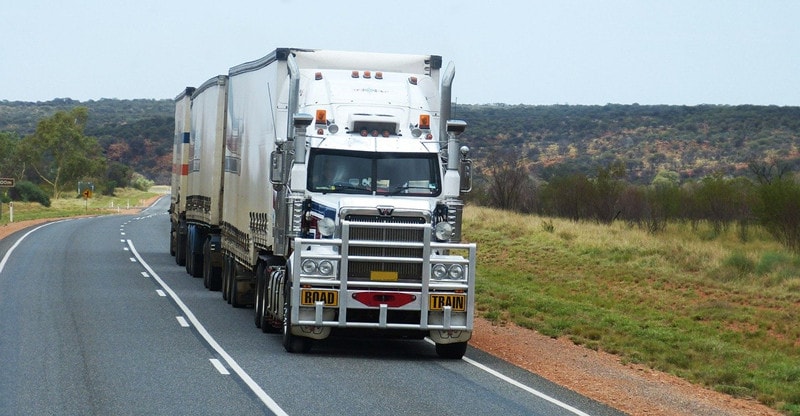options to get you on the task faster choices that fit your budget plan that will reveal you various policy choices with turnaround time in lots of cases less than one day https://socialsocial.social/pin/strongtieinsuranceinc/ from the leading insurance coverage carriers certificates of liability insurance coverage is offered.
You choose to end up being a truck chauffeur. You're seeking to finance or lease your brand-new semi-truck. But before you can get authorized for truck financing you require to have industrial truck or semi-truck insurance coverage. There are a number of types of commercial truck insurance. We will cover whatever you http://www.bbc.co.uk/search?q=truck insurance require to learn about insuring a semi-truck.
One of the aspects is your owner-operator status. There are 2 types of owner-operator status. Owner-operator under lease to a motor provider An owner-operator is a person who owns their own industrial car or small fleet, typically tractor-trailers. Additionally, they can provide their truck and driving services to another motor provider under a lease for a contracted duration and run under that provider's authority.

Things about Commercial Trucking Insurance And Owner Operator Truck
Owner-operators under lease typically pay less due to the motor provider cover a few of the insurance requires. Owner-operators with their own authority tend to pay more due to the fact that they're the owner and have full obligation and responsible for anything that goes incorrect while driving, filling and discharging their trucks. semi truck insurance california. Owner-operators under their own authority or lease have various insurance coverage requirements.
If an individual is injured on your business residential or commercial property, they might make a physical injury claim against your business. For instance, a plan delivery guy trips on loose carpets in your accounting workplace, falls and breaks his wrist. General Liability Insurance can help cover the costs of the physical injury claim he makes versus your company for this accident.
Chauffeurs under lease do not generally need basic liability insurance; a lot of are covered by the motor provider's policy. (Constantly verify with the motor carrier that you're covered under their policy) Who needs it Owner-operators with authority & motor carriersPrimary liability insurance coverage is also called trucking liability insurance coverage. Primary Liability Insurance coverage is the core of any good commercial truck insurance coverage.
How How Does Commercial Truck Insurance Work? can Save You Time, Stress, and Money.
Main Liability Insurance will not cover damage to your own automobile or the products being carried. why is commercial truck insurance so expensive. Primary liability policies usually need every truck to be set up or listed on the policy. Insurance provider will not pay claims if the truck is not scheduled. Who needs it Owner-operators with authority & motor carriersNon-Trucking Liability, or NTL for brief, is truck insurance protection for when you utilize your truck for non-business purposes.

Any individual use in between your return and next dispatch points will be covered under non-trucking liability insurance coverage. Non-Trucking Liability is primarily for motorists under lease with a motor carrier. semi truck insurance. Although they're usually covered by their motor carrier's general liability insurance, that policy is just for company activities like hauling freight, dead-heading or taking a https://autotechnology.com/news/2018/08/effects-of-corrosion-force-commercial-truck-recall/ trip for upkeep.
Who requires it Owner-operators under leaseBobtail Liability insurance coverage is a term coined to use to car liability protection for an owner-operator after a load has been provided and while the truck is not being used for trucking functions. This normally happens when an owner-operator is running his/her truck for movement only, and not in the course of transferring residential or commercial property for the motor carrier under whose operating authority they haul, and on whose liability policy they depend while they are taken part in trucking.
How Does Commercial Truck Insurance Work? Can Be Fun For Anyone
Who requires it Owner-operators under leasePhysical Damage Protection is a basic term for a group of insurance coverage protections that safeguard your vehicle. This general term consists of Collision insurance, along with your option of full Extensive insurance coverage or the more minimal Fire and Theft with Combined Additional Coverage insurance. Who requires all of it Owner-operatorsMotor Truck Cargo insurance (Freight) offers insurance coverage on the freight or product transported by a For-hire trucker.
Who needs it All Owner-operatorsWorkers' Compensation Insurance coverage covers the expenses that include a worker's work-related illness or injury. There's even a portion that covers your legal charges if an employee decides to take legal action against. State laws need most employers to bring Workers' Compensation Insurance coverage in case staff members are hurt on the job.
( refer to your state laws) Distressing injuries after a truck accidentWork-related health problem from direct exposure to hazardous chemicalsStress injuries from recurring loading and dumping cargoWho needs everything Owner-operators & Motor carriers with employeesMany elements figure out the expense of business and semi-truck insurance coverage. Here's a breakdown of the elements that determine your truck insurance rates.
The Facts About Understanding Commercial Truck Insurance Revealed
Going with high limitations translates into greater premiums since the insurance provider desires to cover the possible expense to them. Deductible amount: Higher deductibles mean lower premiums. If you can afford to pay more out of pocket on a claim, then you may want to raise your deductible. If you never need to submit a claim, the higher deductible technique can conserve you money in the long run.